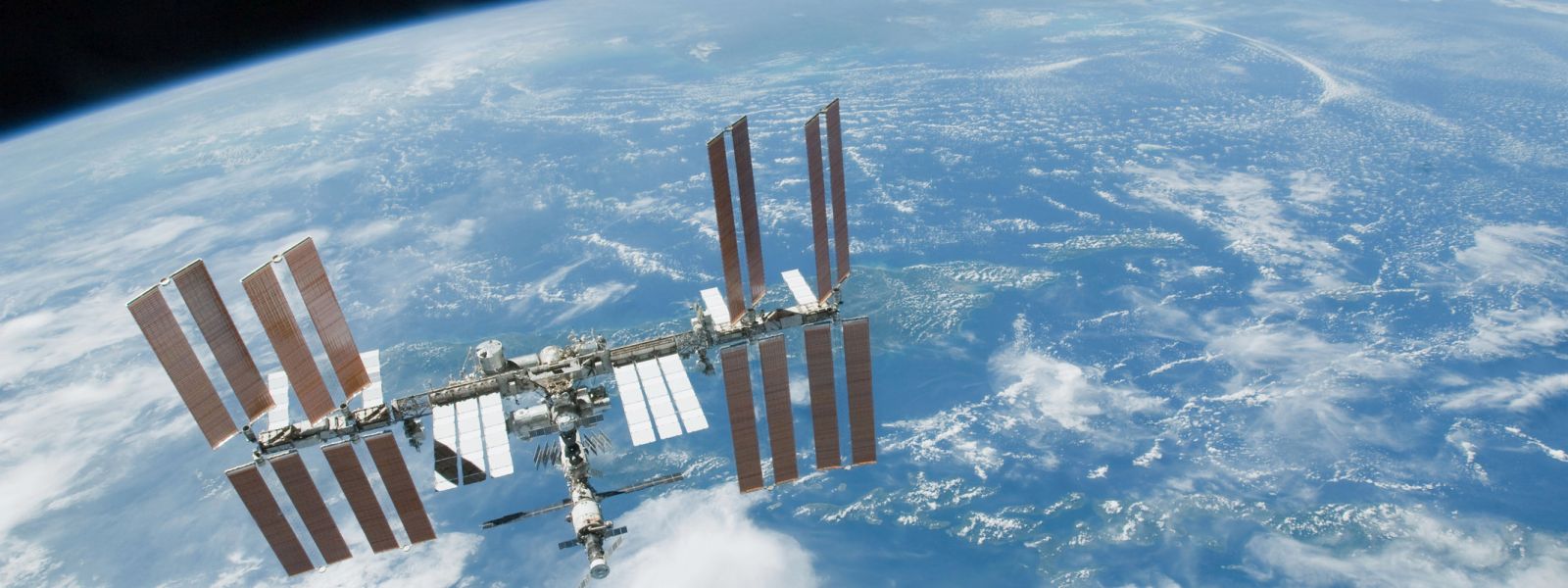
Minister of State for Science, Research and Innovation, George Freeman MP, held talks with space sector leaders during a visit to the University of Strathclyde on Friday (20 January).
Mr Freeman, who is responsible for the UK’s Space Strategy, was greeted by Sir Jim McDonald, Principal and Vice-Chancellor, before holding a roundtable discussion with representatives from Strathclyde, Innovate UK, UKRI, Fraunhofer UK, AAC Clyde Space, Mangata Networks, Alba Orbital, Spire Global and Skyrora.
Afterwards he was given a tour of Strathclyde’s Technology and Innovation Centre to learn more about cutting-edge research taking place at Strathclyde, the University’s contribution to the UK space sector, and future opportunities and applications of technologies.
Mr Freeman had also been hosted for a dinner and business engagement in TIC, with Sir Jim leading a group of pan-City and cross-sector leaders from the industry, public and academic sectors. This allowed the Minister to gain a deeper understanding of the City’s capabilities in the context of the Innovation Accelerator award to Glasgow that had been communicated in last year’s up Levelling Up White Paper.
Research capabilities
Space technologies are among Strathclyde’s key research capabilities and propositions within Glasgow City Innovation District, focused on developing innovative concepts and solutions for space systems, space exploration, satellite applications, and the sustainable use of space.
Sir Jim said: “It is always a pleasure to show Ministers the work we are doing here at the University in collaboration with our partners in industry, academia and government.
“Space technologies are one of our major research strengths and Strathclyde has a strong track record of contributing to the UK’s space sector which is reflected in the many projects we are involved in and the role played by our staff.”
Among those involved the visit was Professor Malcolm Macdonald, Director of the Scottish Centre of Excellence in Satellite Applications and a Non-Executive Board Member of the UK Space Agency, who supported the development of Scotland’s first spacecraft, UKube-1 , which was launched in 2014.
Central role
Strathclyde has played a central role in supporting the development of the Scottish and UK space sectors, helping to transform Scotland into an international space sector success story. Scotland has more than 170 organisations involved in the space sector and produces more satellites than anywhere else outside of the US.
Examples of Strathclyde’s work in the space sector includes:
- The Particle Vibration experiment, currently running on the International Space Station(ISS), which aims to find new ways of creating materials that could be used to produce medicines and metal alloys. The UK Space Agency provided £1.6 million for the build of the experiment, led by Dr Marcello Lappa.
- The International Network in Space Quantum Technologies, led by Dr Daniel Oi and Dr Paul Griffin, Senior Lecturers in the Department ofPhysics, which is tackling the challenges of taking terrestrial quantum technologies into space, and in which the Strathclyde-hosted Fraunhofer Centre for Applied Photonics is a partner. The network is developing satellite-enabled quantum-secure communication and Earth observation, with applications in combating climate change, space weather forecasting, satellite navigation and extra-terrestrial surveying.
- The £18million xSPANCION (Xtended Satellite Production ANd ConstellatIon OperatioNs) Pioneer project, a three-year space project led by AAC Clyde Space, to develop an innovative satellite constellation service to help meet a growing global demand for space data, has launched into the final phase. Academics at Strathclyde are developing software tools and algorithms that will inform the design and operation of complex satellite networks and constellations of the spacecraft, while experts at the National Manufacturing Institute Scotland(NMIS) are advising on the manufacturing process and assembly line procedures.
- The opening of the Glasgow Space Enterprise Lab (SEL), created in partnership with the Satellite Applications Catapult. The lab provides users with access to the latest collaborative technology, resources and expertise to engage and collaborate virtually with other organisations, regardless of location, to help drive economic growth through the exploitation of space.
Strathclyde is also a member of the International Astronautical Federation and home to the Scottish Space School, the Faculty of Engineering’s longest running outreach programme run in partnership with Wood Plc, which every summer sees 80 successful S5 Scottish school pupils attend a week-long summer school with us.
The programme features lectures and activities offered by University staff as well as visiting NASA representatives, and will run in-person this June after two years of taking place virtually.